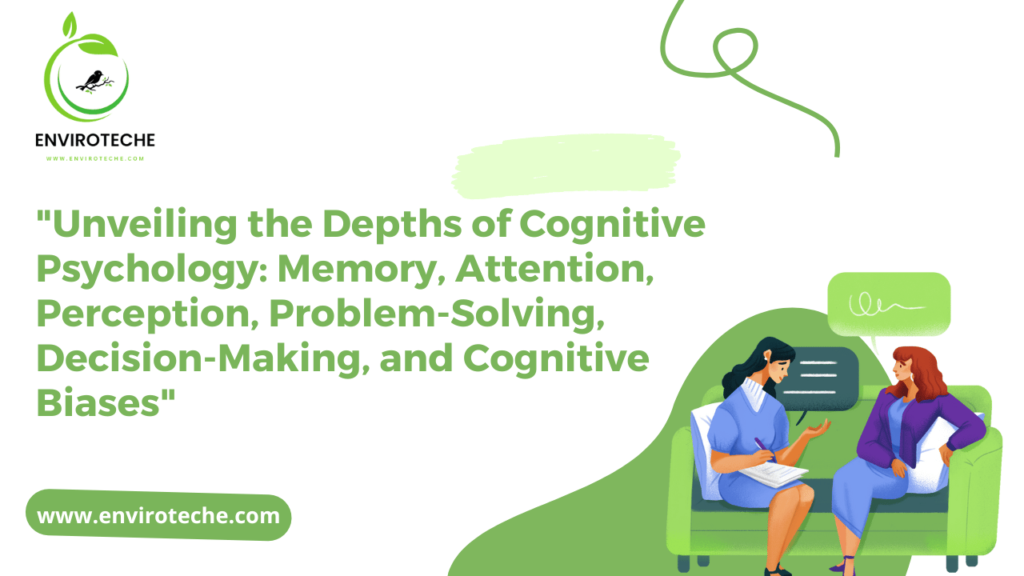
Mahnoor
Department of Psychology, Government College University Faisalabad
Introduction:
Investigating the complex processes that occur in the human mind is the fascinating field of cognitive psychology. You’ll be taken on a tour through many cognitive psychology subjects in this blog article, learning about crucial ideas including memory, attention, perception, problem-solving, decision-making, and cognitive biases.
Memory:
Since memory enables us to store and recall information, it plays a significant role in our daily lives. Consider some of the several types of memory, such as short-term memory, sensory memory, and long-term memory. Learn how to enhance memory and prevent forgetting while exploring the processes of encoding, storage, and retrieval.
Attention:
The first step in perception and cognitive processing is paying attention. Investigate the mechanics of attention, such as sustained, divided, and selective attention. Discover the variables that affect attention, including attentional biases and multitasking, and comprehend how attention can affect how we perceive the environment.
Perception:
Perception is our capacity to understand and interpret sensory information. Discover the intriguing world of perception, including sensory integration, visual perception, and aural perception. Find out about perceptual illusions, how our brain fills in the blanks, and how top-down and bottom-up processes affect how we perceive the world.
Problem-Solving:
A crucial cognitive ability that helps us overcome obstacles and come up with answers is problem-solving. Learn many approaches to problem-solving, such as algorithms, heuristics, and intuition. Learn strategies to improve your problem-solving skills as you explore the barriers and biases that can prevent you from addressing problems effectively.
Decision-Making:
Making decisions requires weighing available options and deciding on the best course of action. Investigate the various models of decision-making, such as bounded rationality and rational decision-making. Gain insights on how to make better judgments in many contexts by understanding the role of emotions, biases, and heuristics in decision-making.
Cognitive Biases:
Cognitive biases, which are deliberate thinking errors that might affect our judgment and decision-making, are easily introduced into our thoughts. Explore the fascinating realm of cognitive biases, which include the availability heuristic, anchoring effect, confirmation bias, and many others. Learn to identify cognitive biases, how they might affect our perceptions, beliefs, and decision-making, and how to counteract them.
Conclusion:
When it comes to understanding the secrets of memory, attention, perception, problem-solving, decision-making, and cognitive biases, cognitive psychology offers invaluable insights. Grasp these cognitive processes can help us think more clearly, make wiser choices, and have a greater grasp of the complexity of the human mind. So start this investigation adventure and watch as the beauties of cognitive psychology reveal themselves. Cognitive Psychology
Check Other Schlorships: